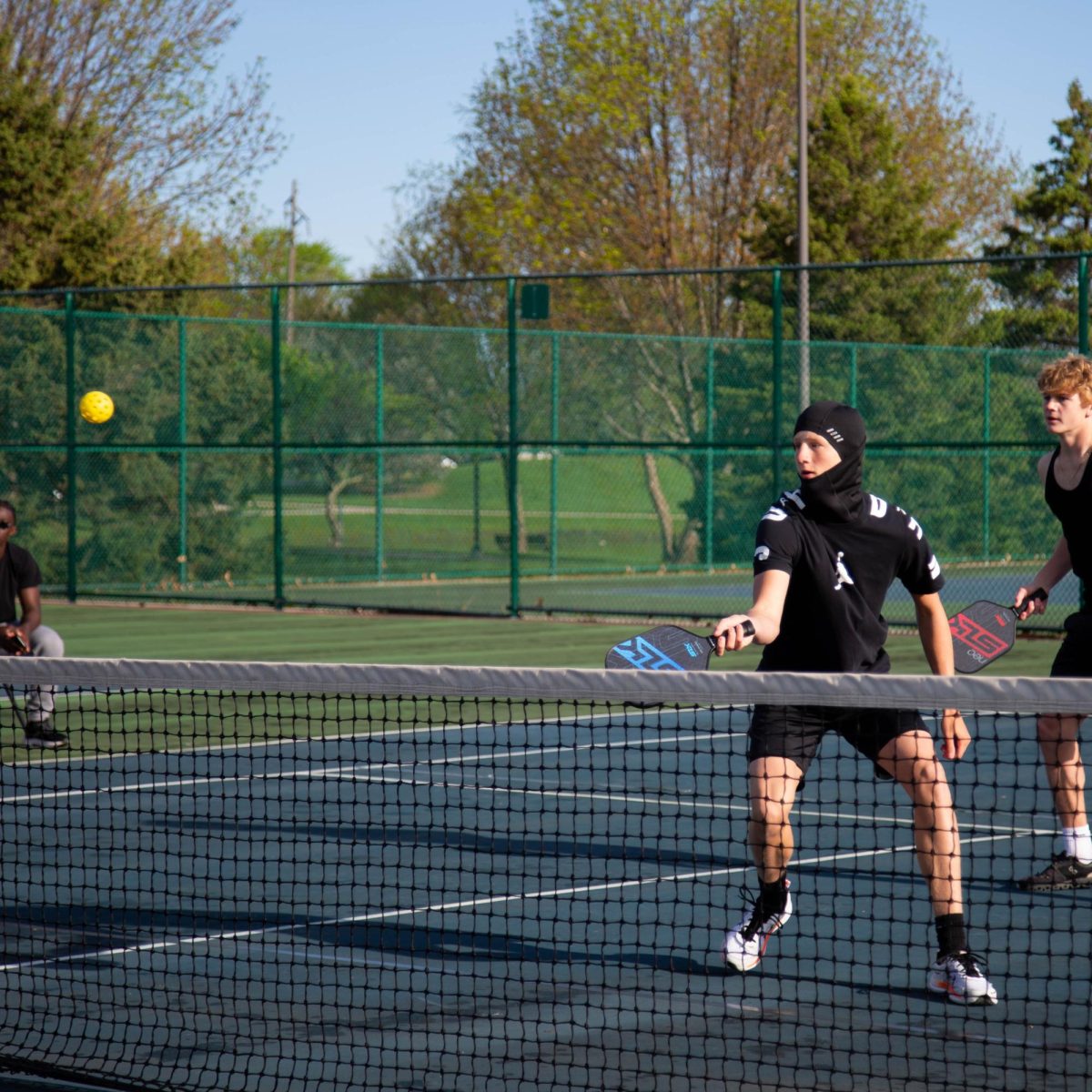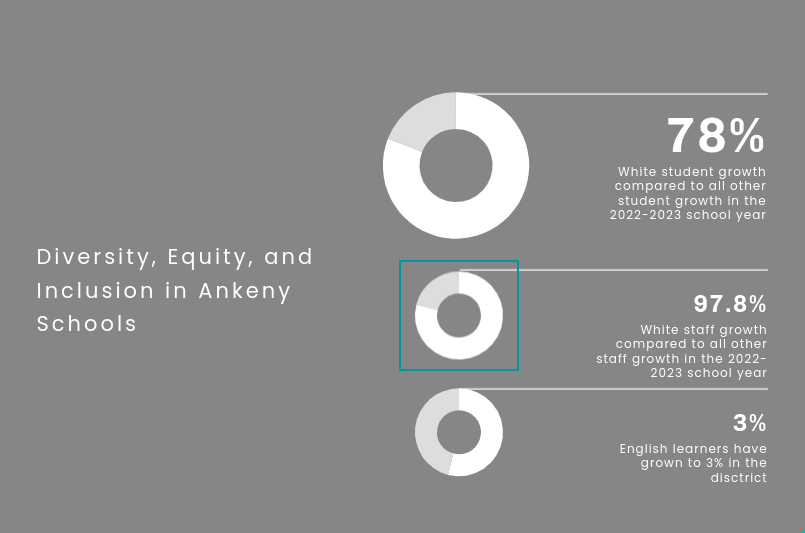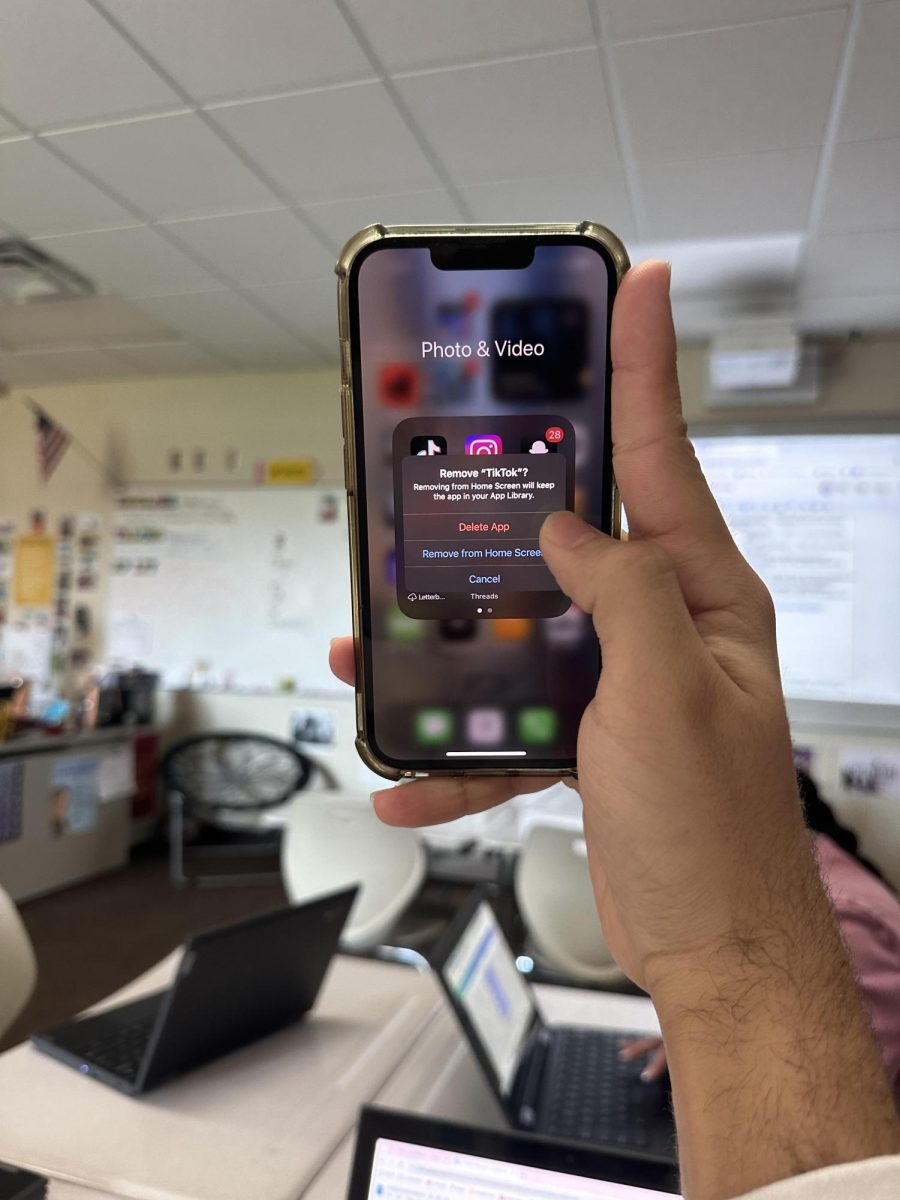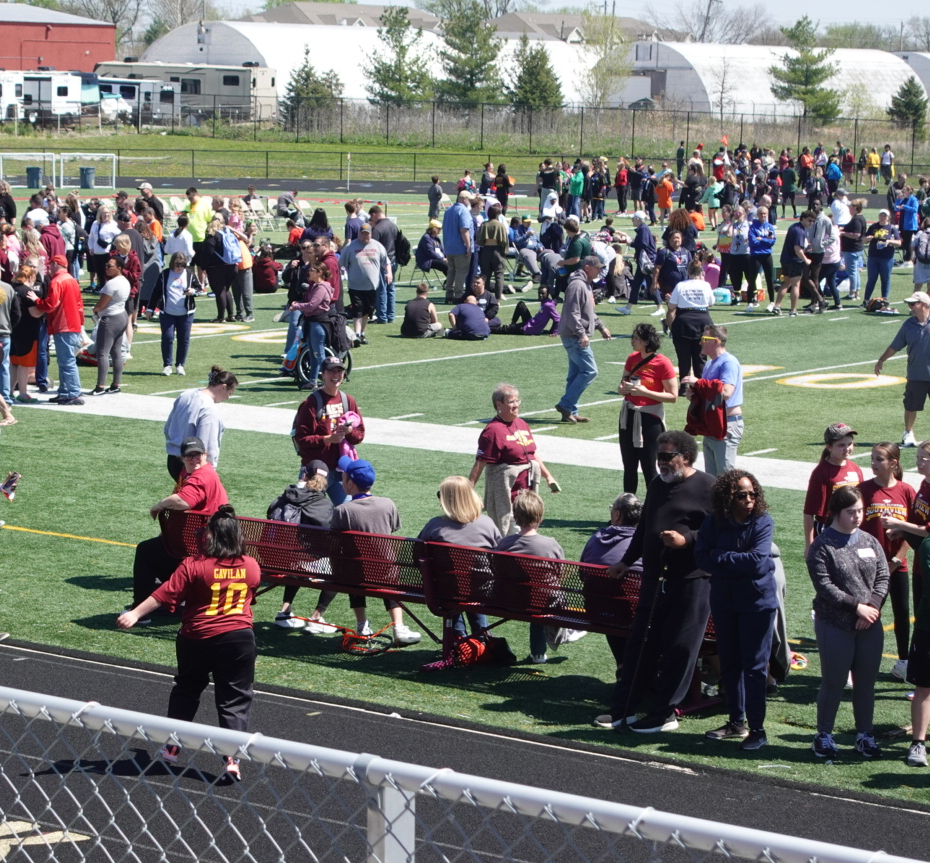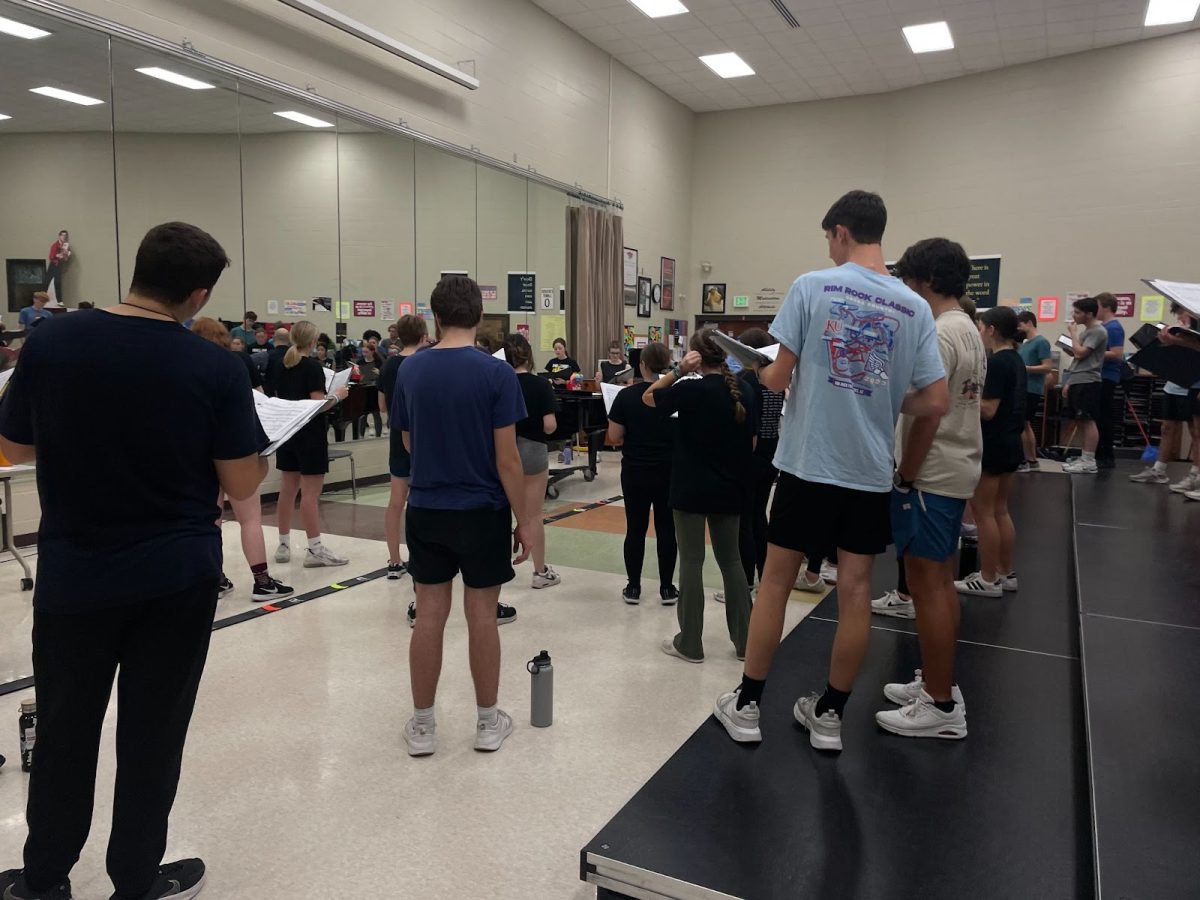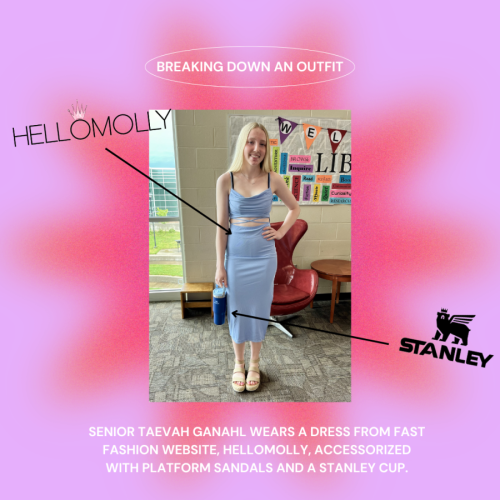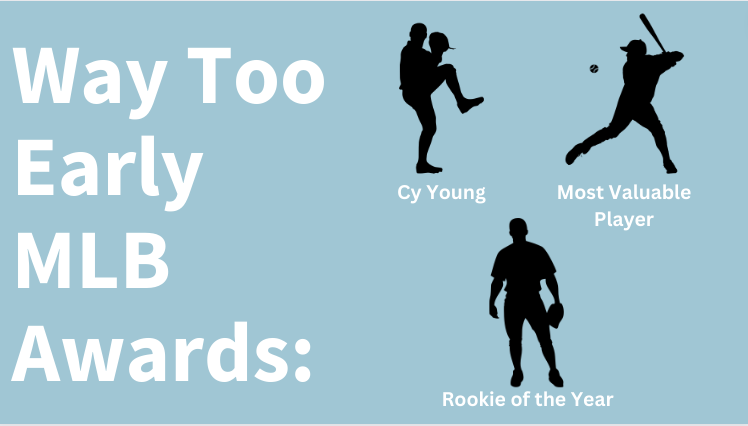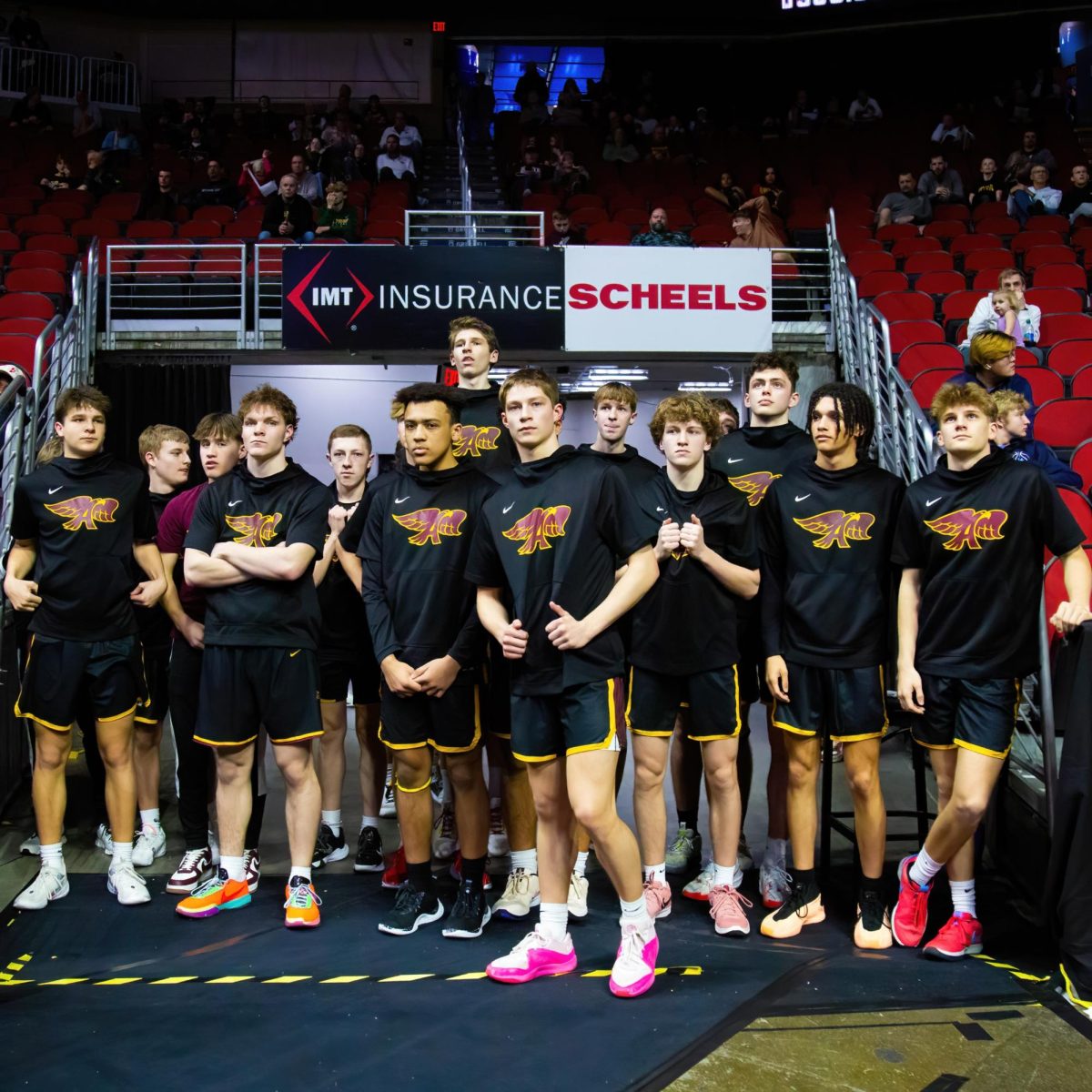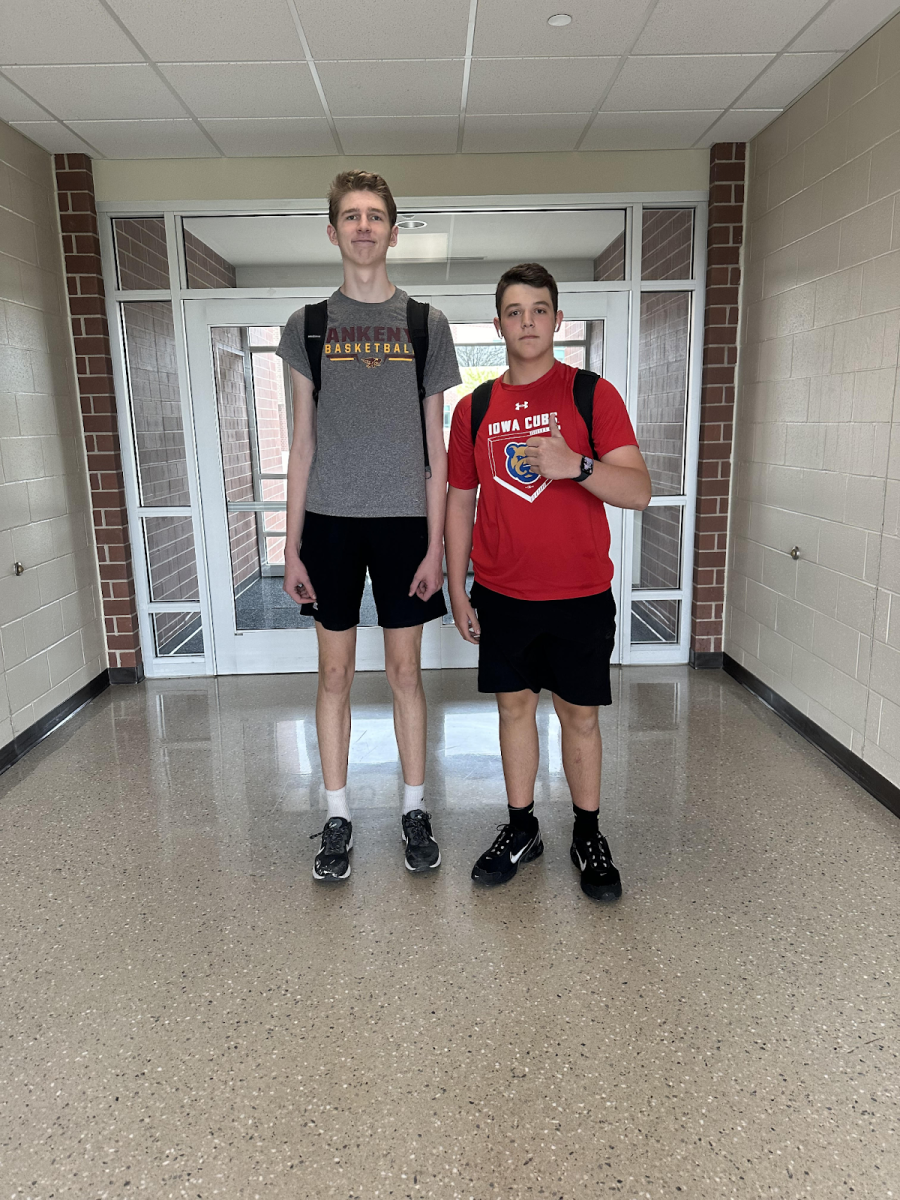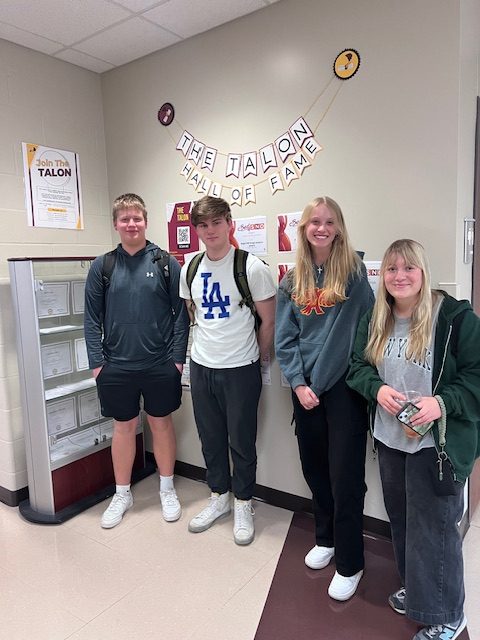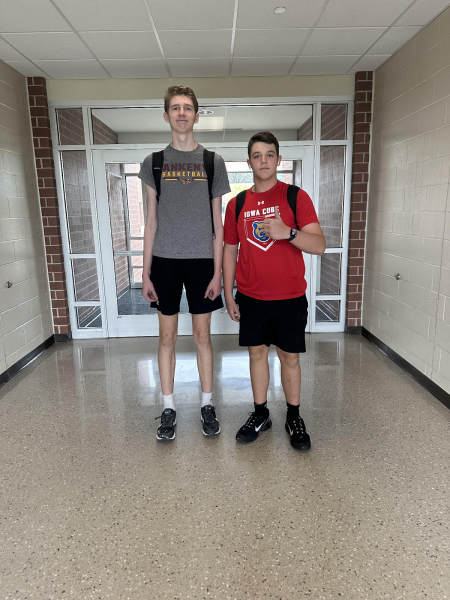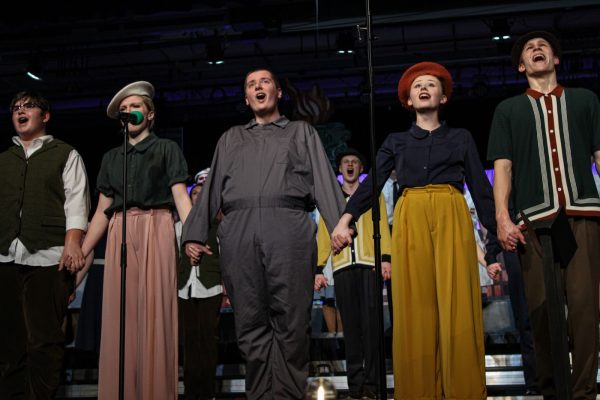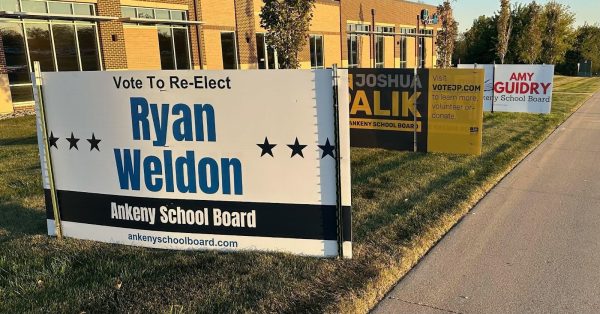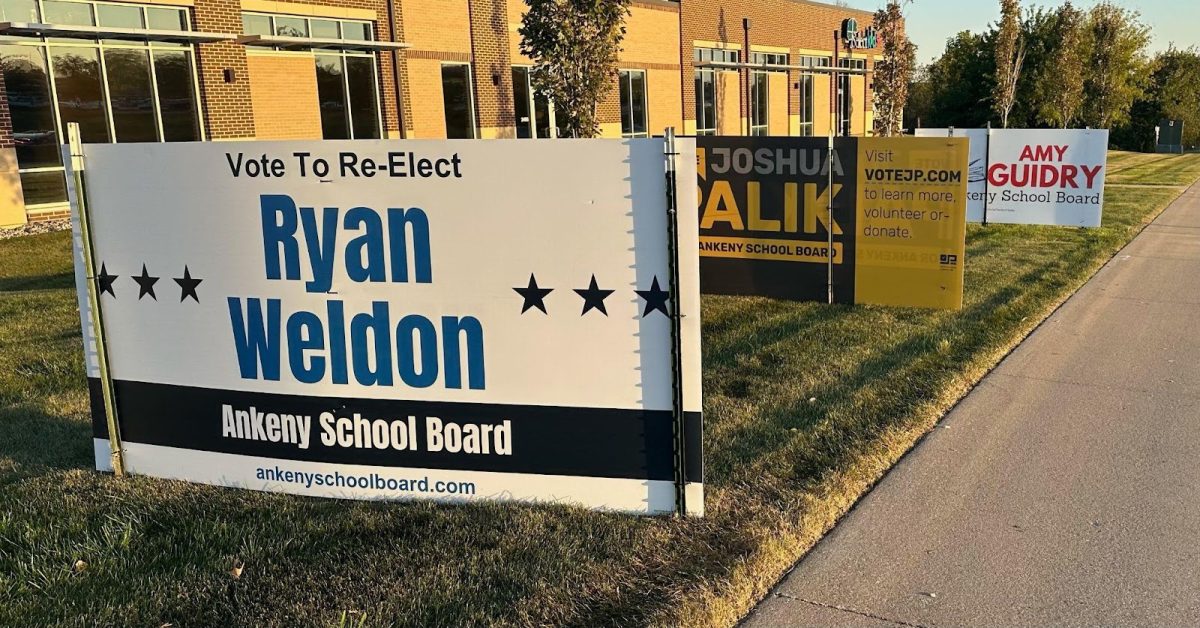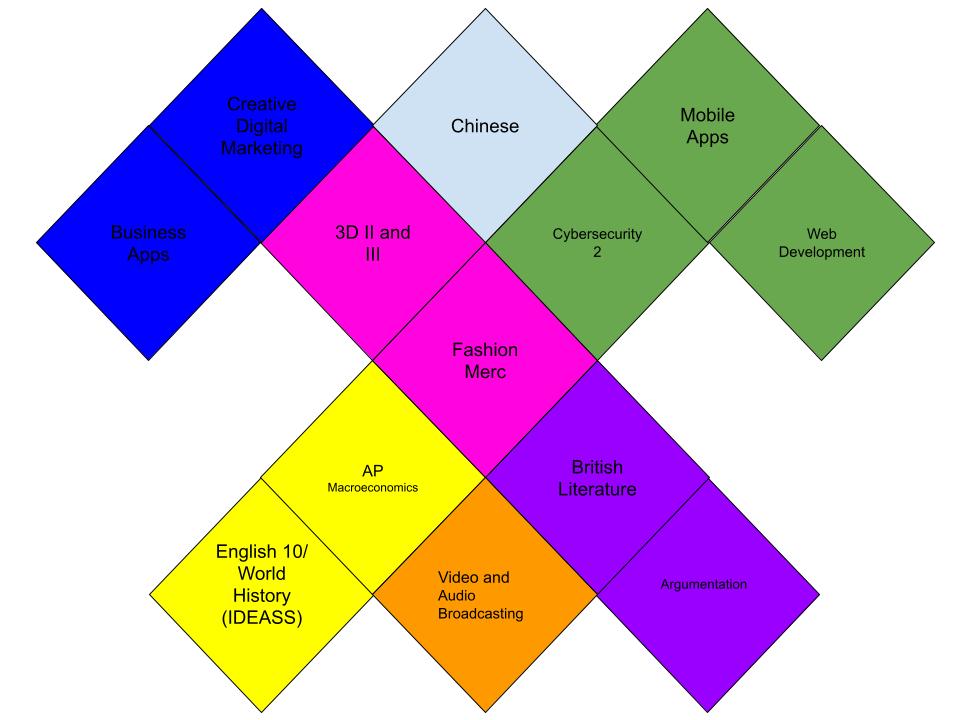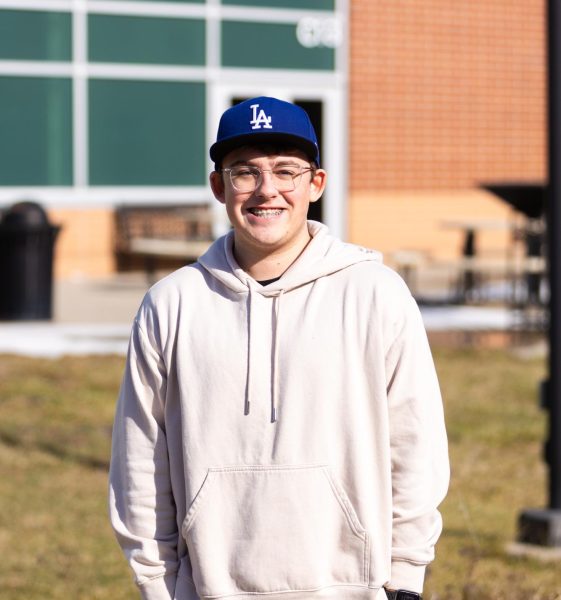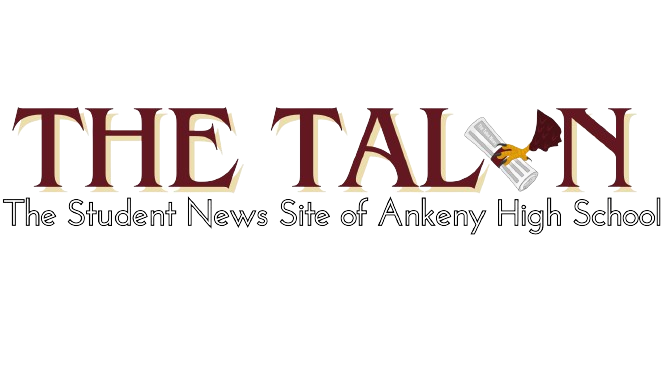Ankeny Schools have an upcoming election to determine who will take the five open seats (four four-year term positions and one two-year term position) on the Ankeny School Board with 10 candidates that are vying for those open seats . Students at Ankeny seemingly do not know much about what goes into being a school board member or the logistics that go into the decision-making process of the board. Here is what you should know before the election on Tuesday, Nov. 7.
The Ankeny School Board consists of seven members, President Ryan Weldon, Vice-President Joy Burk, Sarah Barthole, Katie Claeys, Aaron Johnson, Johsua Palik, and Amy Tagliareni. Together, the board works with Ankeny’s Chief Financial Officer/Board Secretary, Jennifer Jamison, and Superintendent Dr. Erick Pruitt, to make all of the important decisions within Ankeny Schools. Some examples are finance and new educational rules/policies. They act like a legislative branch of Ankeny Schools. At an Oct. 16 board meeting, the School Board covered Ankeny’s current financing by touching base with each other about fundraising for the district and various donations that the district has received.
“The most rewarding [part of our role] to me is the impact it has on staff and students,” Jamison said. “We have a kind of a hidden role in some ways. You know people don’t think about how we keep the lights on, how we pay the staff, and so it just kind of happens behind the scenes.”
Weldon says that every few weeks the president of the School Board, vice-president, and the superintendent will come together and meet to decide what topics will be covered at School Board meetings. Together, the School Board meets about those topics and decides how Ankeny schools should address them, voting on policy changes if needed.
“The president signs off on the contracts we approve at our board meetings,” Burk said. “Then, the vice president is there to support, so if our president Ryan Weldon had to be out of town, I would take over the meetings. So Ryan runs our meetings, but if he is absent then I would take his place at the meeting itself and just fill his role.”
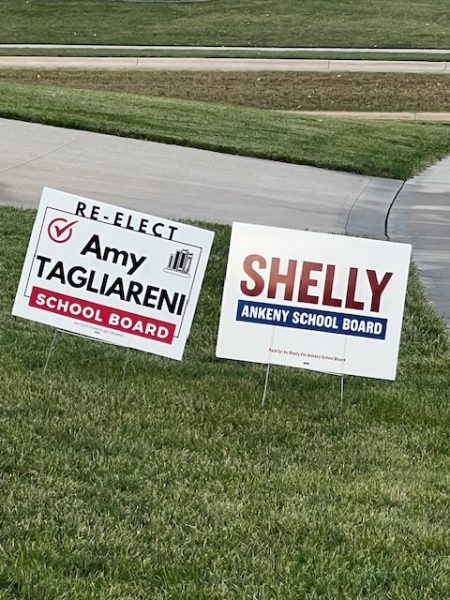
You can cast your vote in Ankeny on Tuesday, Nov. 7 from 7 a.m. to 8 p.m. (Rhys Hansen)
On Tuesday, Nov. 7, there will be an election for five of the open seats on the School Board. Four of the open spots are four-year terms and the last is a two-year term. The terms of Ryan Weldon, Katie Claeys, Aaron Johnson, Joshua Palik, and Amy Tagliareni are expiring in 2023 and their seats will be open for the election. Every member currently on the board is re-running, except for Aaron Johnson. The candidates Nick Bourne, Katie Claeys, Stephanie Gott, Christian Holtz, Shelly Northway, Joshua Palik, Amber Romans, and Ryan Weldon are running for the four-year terms. Amy Guidry and Amy Tagliareni are running for the two-year term, reports the Des Moines Register.
“We’re all at-large, which means we have to campaign across the entire town,” Weldon said. “To put that in perspective, the two Iowa House members that represent Ankeny only have to campaign half of the district, but, we have to campaign the whole district, and so it’s a lot more intense than what people may think and it takes more money than people may think.”
As with every council or governance, not all board members have the same opinions. However, all board members would like one thing to come out of the elections in November: cooperation and teamwork. Being in a peaceful environment with people who are enjoyable to be around may make disagreements easier to discuss.
“So my wish for any board is to work with that unanimity and that when a decision is made we’re able to move on and have good healthy dialogue,” board member Aaron Johnson said. “Every election is an opportunity for someone new and to learn from them and they learn the process as well. A spirit of unanimity.”
What is next for the school board? The consensus in Ankeny seems to be equity. The definition of equity according to the Oxford English Dictionary is the “quality of being equal or fair: fairness, impartiality; even-handed dealing.”
Equity and equality are often mixed up, however equity is relative and equality is more objective. Let’s put this into problem-solving terms. An example would be solving homelessness. Equality would solve homelessness by giving every homeless family the same apartment in an apartment building, whereas equity would solve the problem by giving every family a house that has the same number of rooms that the family needs. Because equity is relative, that is the reason that it will most likely be a topic discussed after the elections in November. To get every student in Ankeny what they need to succeed will take time.
“The whole concept of what equity is is a very divisive topic in our community. I think it is due to a national political view of certain topics,” Weldon said. “But at the end of the day, what we define equity as is different than what California or New York or Kansas and so for us we have to define it our own way [for students to succeed]. So, we’ve had conversations at the board table in the public’s eye, so we can come to a mutual understanding of what [equity] is for Ankeny and what it isn’t [to help students academically].”

Do you know where to cast your ballot tomorrow? Check out the Secretary of State Paul Pate’s voter registration page for information on where and when to vote in Ankeny.

